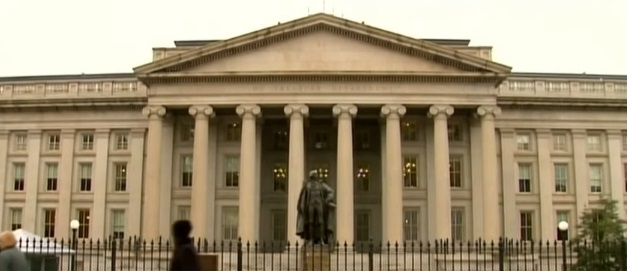The U.S. Treasury and Internal Revenue System (IRS) have mistakenly sent $1.4 billion worth of stimulus checks to dead people, a report by an independent government agency shows. The agency has pointed fingers at the government for its failure to check death records before dispersing payments, as millions of Americans wait for the stimulus checks to reach them.
The payments were part of the coronavirus aid package passed in March known as the CARES Act and once again raise questions on the U.S. government's response to the pandemic. The findings are part of a full report on coronavirus rescue funds and the agency has also warned of risks of fraud in the government's enhanced unemployment benefits program aimed at helping Americans survive the financial crisis faced due to the pandemic.
A Big Gaffe

The Government Accountability Office (GAO) said in a report on Thursday that the Treasury Department and IRS erroneously sent almost 1.1 million dead people stimulus checks for up to $1,200 each, totaling around $1.4 billion, as of April 30. GAO said that the error involved both checks and direct deposits. The GAO mentions in the report that the improper payments happened because of confusion over whether dead people should receive payments.
Moreover, it has blamed the lack of coordination between the Treasury Department and the IRS. The checks were mistakenly sent to deceased Americans because only the IRS had access to the Social Security Administration's full set of death records. So far, the IRS has dispersed over 160 million checks worth nearly $270 billion to people for coronavirus relief.
How did the Error Happen?
In the initial days following the announcement of the stimulus package, the IRS was under tremendous pressure to send the checks to millions of Americans at the earliest. In order to do this, the tax bureau bypassed established protocols, decided not to use available death records and failed to communicate clearly with the Treasury Department.
The IRS did not crosscheck death records, which are maintained by the Social Security Administration for the first three batches of coronavirus relief payments, which account for over 70 percent of the money dispersed to date. Moreover, the report mentions that IRS was initially unsure about if the law permitted it to deny payments to the deceased.
Warning of Risk of Fraud

The Treasury Department learned about the mistake only in the fourth round after a working group administering the payments brought up concerns about deceased people receiving payments in late March. However, by that time checks had reached millions of dead people.
In the 403-page report, the GAO has also warned of risk of fraud in the government's enhanced unemployment benefits and its flagship Paycheck Protection Program, which is aiding small US businesses with money to keep their employees on payroll. It has also raised concern over how "fraudsters could use personally identifiable information to receive payments that belong to eligible recipients."
The GOA has also warned that fraudsters could try to use the agency's website portal to route money to their bank account. As of now, the IRS is trying to find out how many of the mistakenly sent checks were cashed and has also issued a request saying that payments made to people who died before the coronavirus relief payment was issued should be returned to the government.









